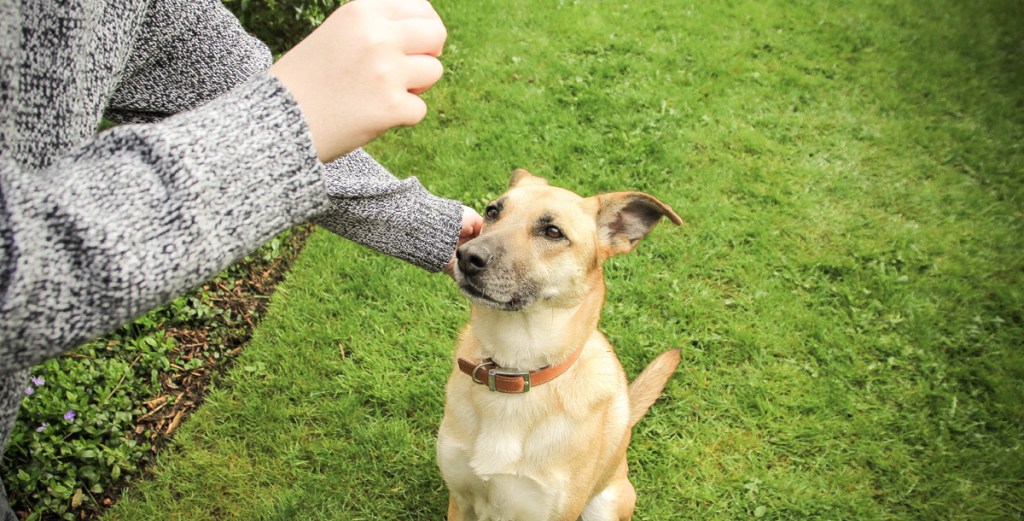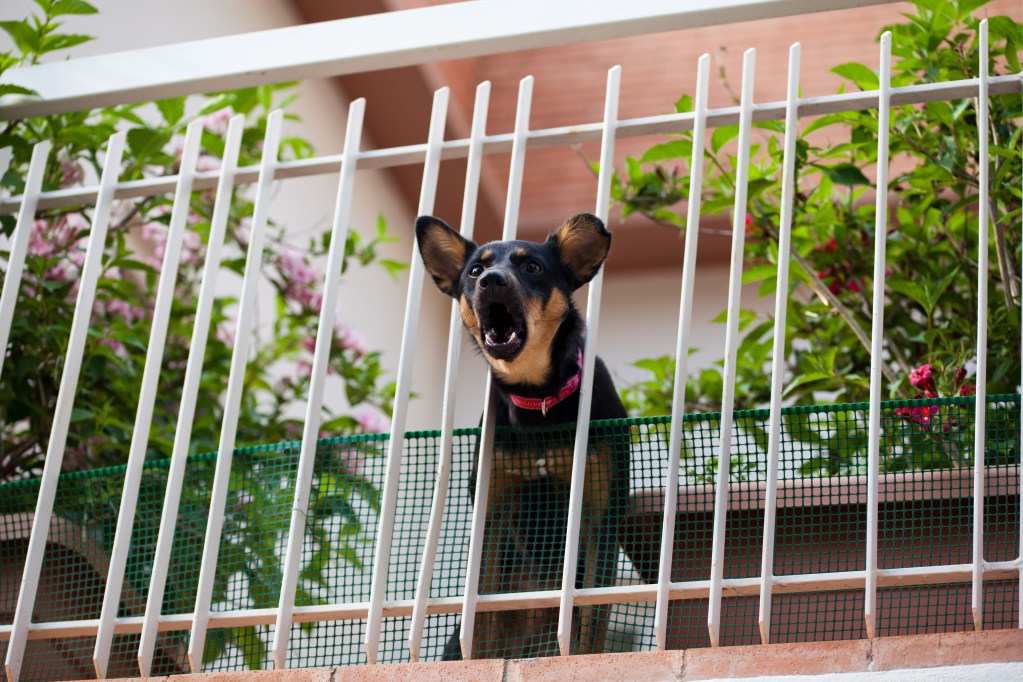If you’ve ever tossed and turned because your neighbor’s pooch barked all night, then you know how incredibly frustrating a noisy dog can be. Don’t let your pup be “that” dog in your community. While it’s perfectly natural for Fido to bark occasionally, excessive barking at unreasonable hours or for long periods is unneighborly.
Experts at the American Kennel Club (AKC) say that preventing nuisance barking should be a top priority for responsible pet parents. If you live with a loud four-legger that barks nonstop, take steps now to resolve the problem before your neighbor complains (or you lose your mind).

What dog breed is noisy?

When your dog barks at night
The first step in solving nighttime barking is to figure out why it’s happening. Here are some reasons why dogs may bark at night.
1. Barking when unsupervised
One of the most common reasons for dogs to bark at night is because they’re left outside alone. When nocturnal critters come out to play, dogs go on high alert and the barking starts.
What you can do: Training experts say dogs should not be allowed to stay outside all night. It’s difficult for dogs to relax with all the nighttime sounds. Instead, keep your dog safely indoors when it’s time for bed. Consider restricting her to one room while she’s sleeping. To cut down on outside noise, choose an interior room away from a busy street or the backyard.
2. Barking to raise an alarm
While we may welcome our dog alerting us when someone’s at the door, it’s a nuisance if she barks at every outdoor sound or movement. This is especially true when you live in a neighborhood where homes are close together or in an apartment building and expect some noise.
What you can do: Use positive motivation training to desensitize your dog to outside stimuli. When she barks at an outside sound, wait for her to stop and immediately give her a high-quality treat and tell her “good quiet.” Do this consistently, and she will start to connect silence with a reward.
3. Your dog may be lonely
Dogs who are left alone for long hours during the day may be craving attention. Once the family retires for the night, a lonely dog could bark when she’s separated from her pack again.
What you can do: Once you return home, be sure to spend quality time with your furry friend. Take her for a long walk and play her favorite games. At bedtime, consider letting your dog sleep in your room with you.
4. When senior dogs bark at night
Your senior dog may be suffering from dog dementia, also known as canine cognitive dysfunction (CCD). According to veterinary experts, dogs who suffer from CCD may sleep less and bark or howl at night.
What you can do: If you suspect your senior is suffering from CCD, talk to your veterinarian about medications and strategies that can help your buddy relax at night.

Barking when home alone
Many pet parents aren’t aware that their dogs are barking incessantly when home alone until someone complains. Boredom, restlessness, fear, and separation anxiety are all common reasons for dogs to bark when alone, say experts at the AKC. Lack of exercise and socialization can contribute to problem behaviors as well, including inappropriate barking, writes veterinarian Debra Horwitz in a VCA Hospitals article. Here are steps you can take to help your dog relax when alone.
- Take your beastie for a long walk before you leave for the day.
- Provide a puzzle toy to entertain her.
- Hire a dog walker to take your dog out during the day.
- Leave classical music or the radio on for background noise.
If you’re not sure why your dog is barking, you can use a monitoring camera such as the Petcube Cam Wi-Fi pet camera to observe her behavior when alone. This might give you clues as to what’s setting off the barking and help you devise a solution. If you suspect separation anxiety, speak with your veterinarian about anxiety medication.

Barking at the neighbors
Your neighbors can’t enjoy their yard if your dog’s barking nonstop every time she sees them outside. There are steps you can take to restore peace. First, stop allowing your dog unsupervised time in the yard when she can engage in this unwanted behavior. Next, redirect your dog away from inappropriate barking by rewarding her with treats for sitting or lying down and focusing on you. She will soon learn that when she doesn’t bark outside, she gets a reward.

Barking when out on a walk
If your pup engages in leash-reactivity barking, she’s probably been labeled the “out of control” dog that everyone avoids. While it’s easy to get frustrated with this behavior, you need to remain calm, figure out what’s causing the behavior, and come up with a positive solution. According to training experts, there are many reasons for leash-reactivity barking including fear, aggression, and frustration. This can be a difficult behavior to fix and it’s best to enlist the help of a positive-motivation trainer to develop a training routine.
If your dog’s barking has been out of control for a while, it will take time and patience to break the habit. Reasonable neighbors will be more understanding when they see you working to solve the problem. Be consistent with the training, and the nuisance barking will eventually stop and peace will be restored to your home and community.




